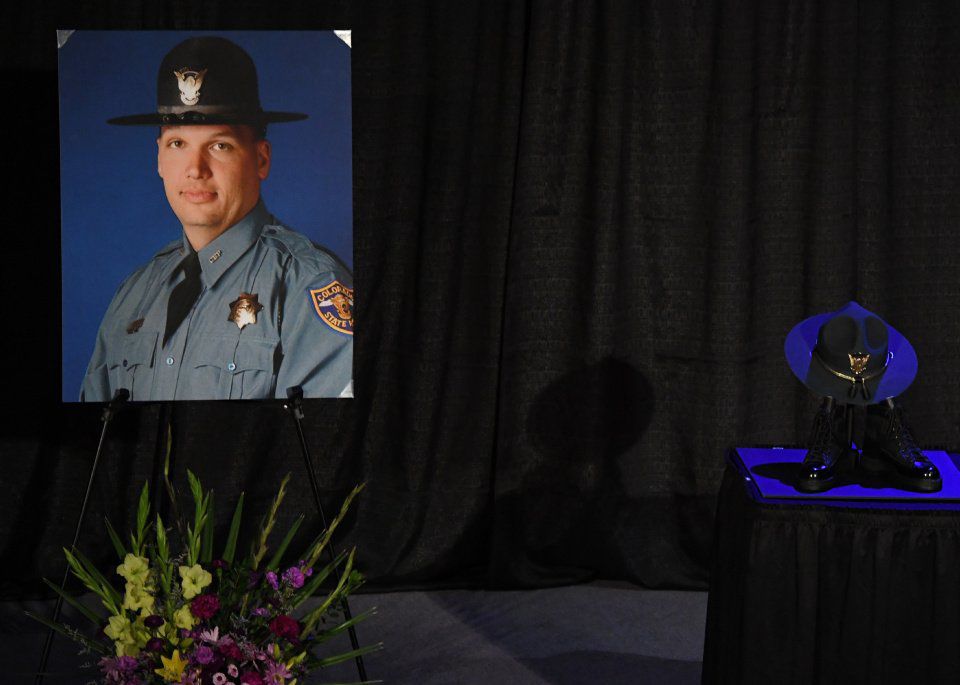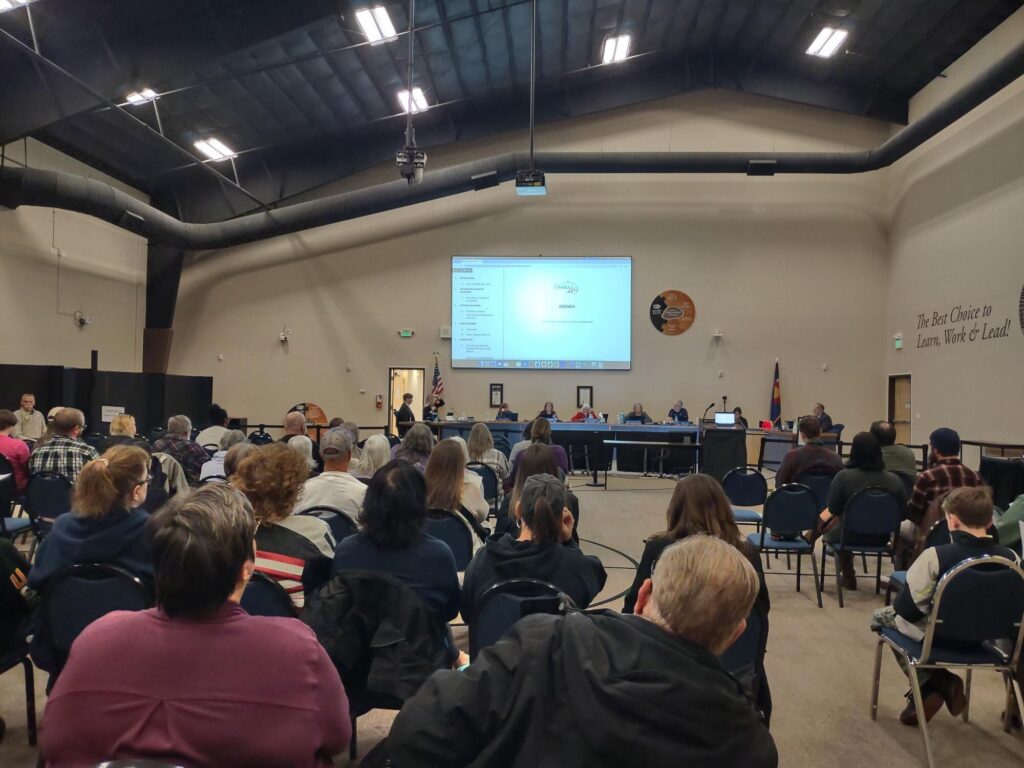One year after Trooper Donahue’s death, Colorado drivers aren’t heeding Move Over Law

It’s been one year since Colorado State Patrol Trooper Cody Donahue was hit by a truck and killed while working along Interstate 25, yet drivers still aren’t moving over for emergency vehicles.
Patrol records show citations for violators have nearly doubled in the last year, a result of troopers more strictly enforcing the law as well as drivers ignoring it, spokesman Joshua Lewis said.
Through Nov. 20, this year, troopers ticketed 2,269 drivers who failed to move into another lane when passing stationary emergency vehicles with lights flashing, as the law mandates. That’s more than 2015 and 2016 citations combined.
“We want to make sure this never happens again,” Lewis said of Donahue’s death. “It’s no longer a matter of just giving warnings like we may have in the past.”
Trooper Donahue was investigating a crash on I-25 south of Castle Rock on Nov. 25, 2016, when he was hit by a US Foods box truck that drifted over the solid white fog line. Officials said the 34-year-old husband and father of two was killed instantly.
The crash prompted Governor John Hickenlooper to sign the “Move Over for Cody Act,” which was named after Donahue but also paid tribute to Trooper Jaimie L. Jursevics, who was killed by a drunk driver as she was trying to wave him to the shoulder a year earlier, also on I-25 in Douglas County.
The act increased the penalty for “failing to exhibit due care and caution” when passing a roadside emergency vehicle, tow truck or public utility vehicle to a Class 1 misdemeanor if someone is injured and a Class 6 felony if someone is killed.
It went into effect in September.
It’s too early to know how those stricter penalties may be effecting driver behavior. About 352 drivers in the state were caught improperly passing in the last three months, records show.
Northwestern Colorado drivers appear to be among the worst offenders, receiving 1,469 citations over the last five years in parts of Garfield, Eagle and Pitkin counties. In the same span, El Paso and Teller county drivers have been ticketed 224 times, 72 of them this year.
One dangerous situation in Colorado Springs that went unticketed happened in October during a ride-along with patrol Cpl. JR Benavides. It was 5 a.m. and Benavides was preparing to pull into one of his usual spots to watch for speeders.
He flipped on his emergency lights to warn drivers behind him that he was slowing and pulling over on I-25 southbound, near the Academy Boulevard exit. His lights flashed brighter in the dark of the morning but they didn’t seem to faze the driver behind him as the car quickly gained ground and whizzed past just as Benavides exited the roadway.
The driver hadn’t attempted to move out of the lane, though traffic was light and space was ample.
“There goes one right there,” Benavides had said of move-over-law violators, the frustration evident in his voice. “They had room to get over.”
The educational media storm prompted by Donahue’s death has helped increase awareness about the law, Lewis said. So have “1-Charlie-3” enforcement crackdowns, named for Donahue’s call sign on the radio.
But “it still remains a danger,” he said.
Lewis himself recalls the “harrowing” feeling of standing exposed on the side of a road as drivers whiz past going 75 mph or faster.
“You can feel the wind from vehicles hit you and this rumble under your feet,” Lewis said.
When traffic prohibits a lane change, the law requires drivers to at least slow down. Though it does not give a specific speed for safe passing, Lewis recommends drivers “slow significantly” enough to react to pedestrians who may be on or near the road.
“That doesn’t mean slowing to the speed limit or a little below, it means ‘significantly,'” Lewis said. “How fast would you want traffic going past you? What if that was your family on the side of the road?
“Ultimately we need the public’s help to go home every night,” Lewis said.
Donahue’s family – which pleaded in a statement last year for drivers to “please slow down and move over” for emergency vehicles, because “two little girls are going to grow up without their Daddy and there’s just no good reason” – awaits a resolution in his death.
Initial charges against the box truck driver, Noe Gamez-Ruiz, 42, were dismissed in January and replaced by charges of suspicion of criminally negligent homicide, a felony; carelessly passing an emergency vehicle resulting in death; and careless driving resulting in death, court records show.
Gamez-Ruiz has pleaded not guilty and is scheduled for a motions hearing in January. A trial is tentatively set for April.













